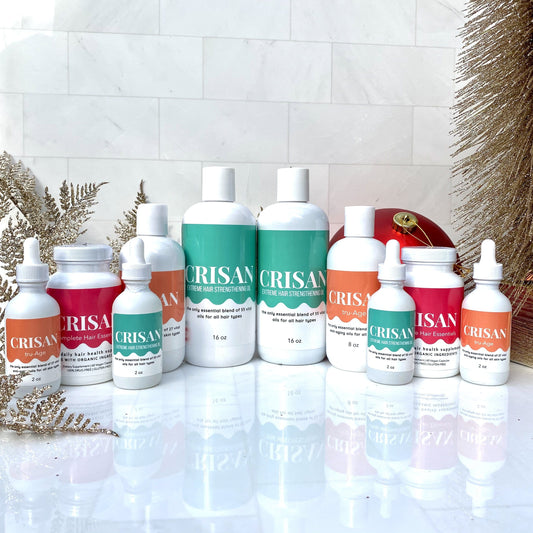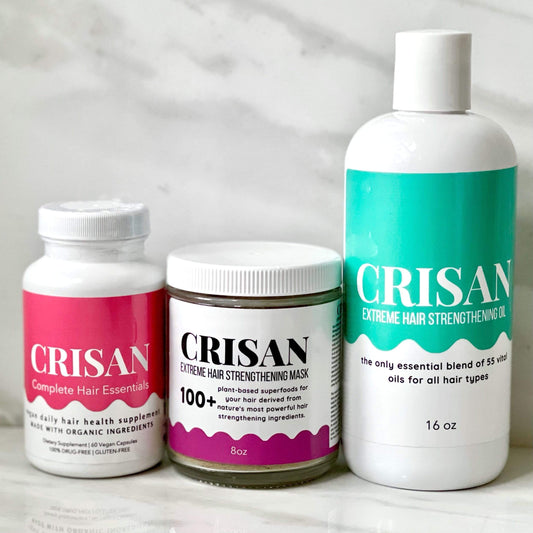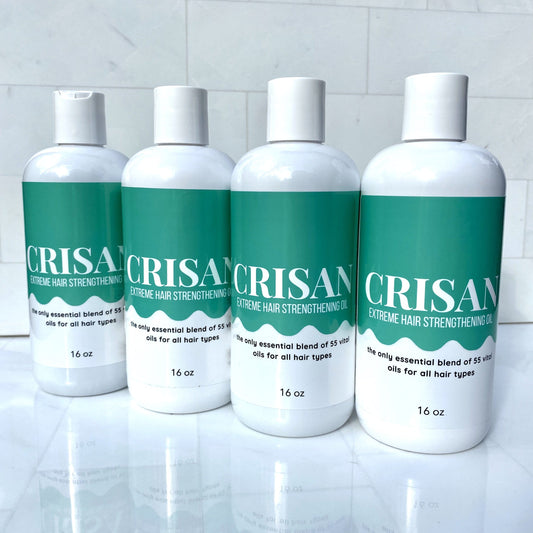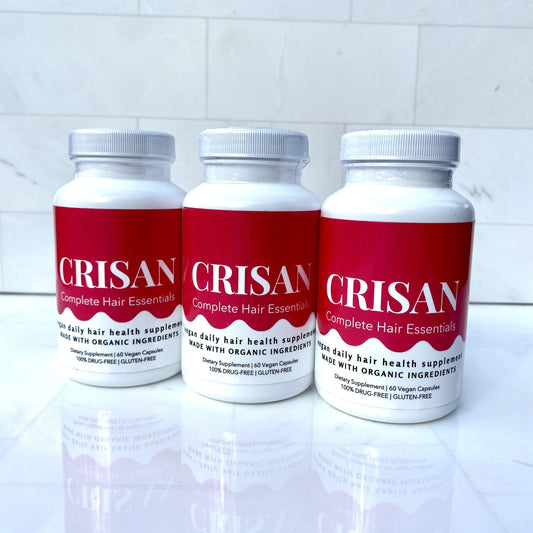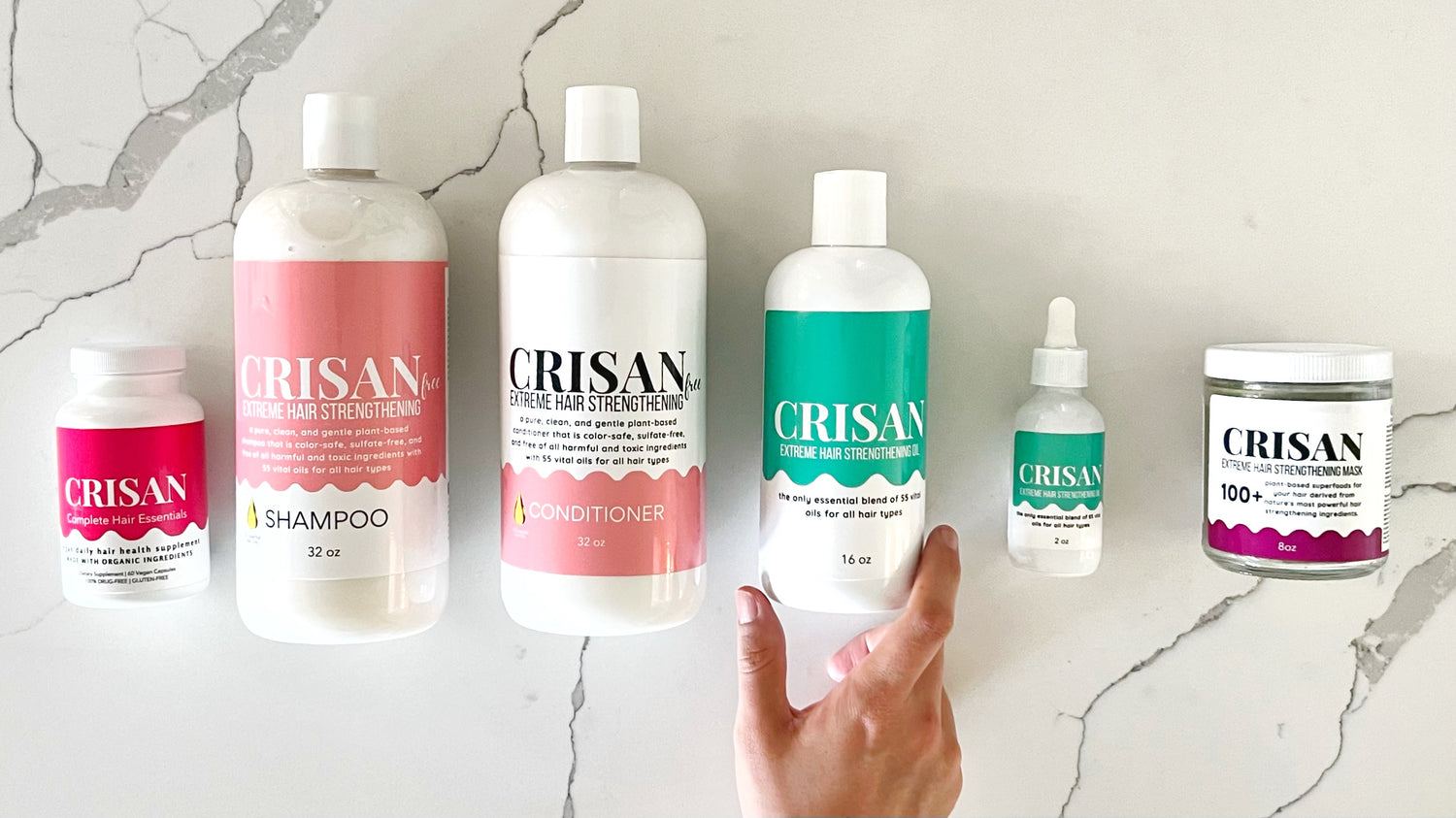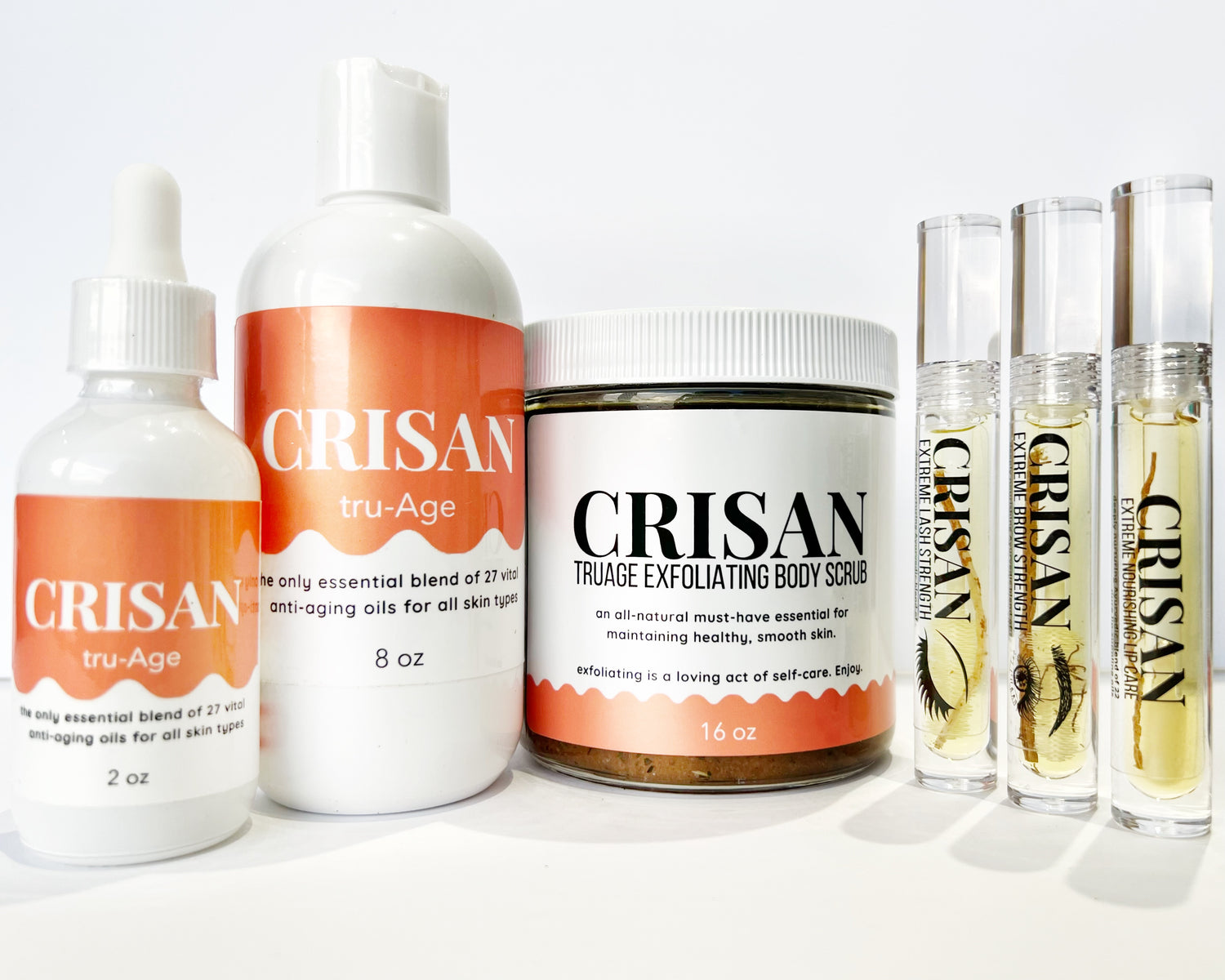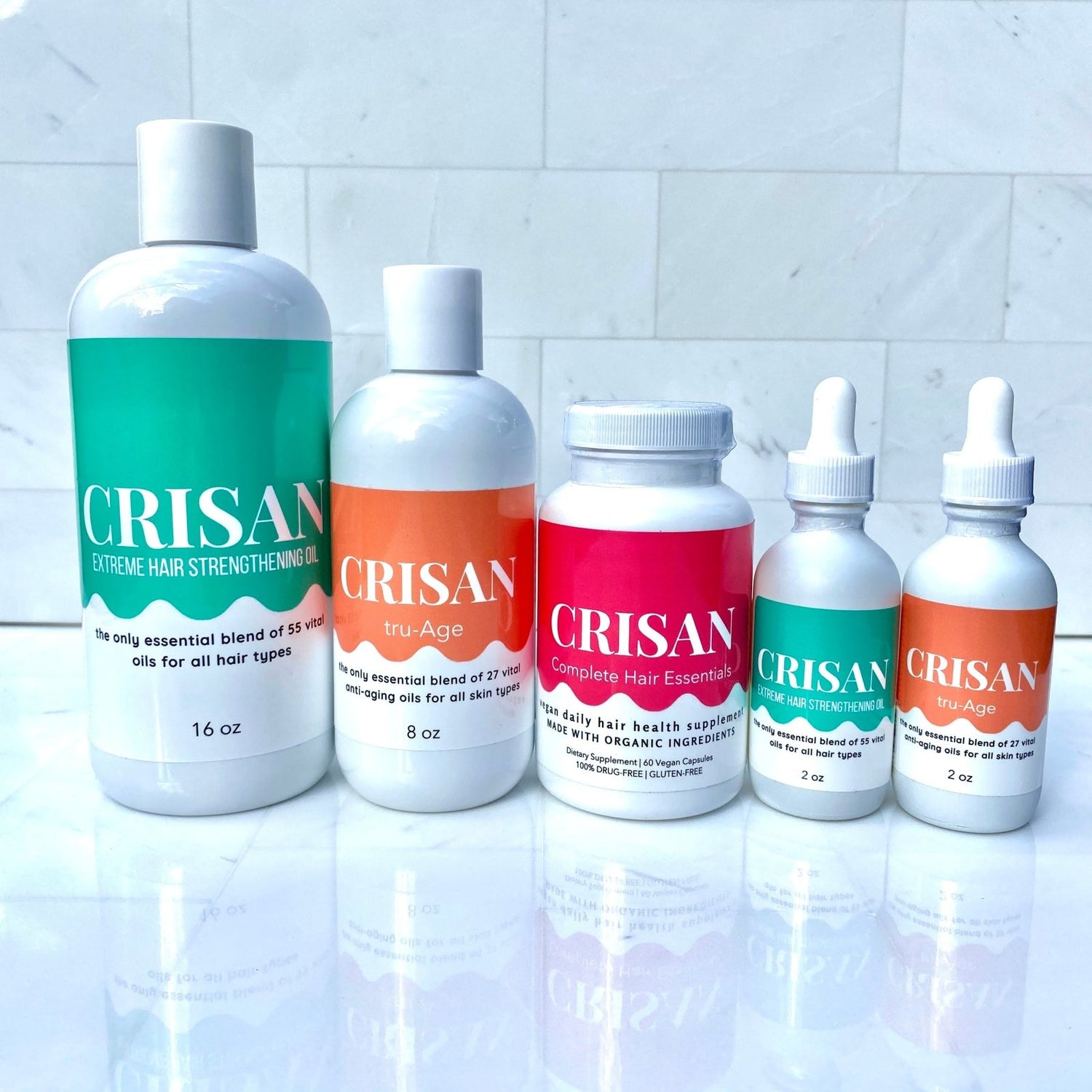Do you have a flaky scalp? If so, you're not alone. Dandruff is a common problem that affects millions of people every year.
While there are many dandruff shampoos and commercial products available to help reduce dandruff, they often contain harsh chemicals that can damage your scalp and hair.
In this blog post, we will discuss natural remedies and products that help to balance oil production and ban dandruff for good. Let's see which daily habits can trigger dandruff and discuss tips for preventing future outbreaks. Let's get started!
What is dandruff?

Dandruff is a condition of the scalp that causes flakes of skin to fall off. It can be caused by many things, including dry skin, oily skin, fungal infections, or eczema.
It is usually not contagious and does not cause any permanent damage to the scalp or hair. However, it can be embarrassing and difficult to get rid of.
Dandruff Symptoms
The most common dandruff symptom is the presence of white flakes on the scalp, shoulders, and clothing. Other dandruff symptoms may include scalp itch, redness, and scaling of the scalp. You may also notice that you have an oily scalp and that your hair is greasier than usual.
Common Causes of Dandruff
One of the most common causes of dandruff is an overgrowth of a type of yeast called "Malassezia". This yeast is found on the heads of both adults and children. In most cases, it doesn't cause any problems.
However, in some people, it can lead to an overproduction of skin cells. This can cause the scalp to shed more quickly than usual, resulting in greasy patches and dandruff flakes.
What causes dandruff?
Many different factors can contribute to dandruff. The most common cause is dry skin. This can be due to weather conditions, such as cold weather or wind, or it can be a result of using harsh detergents or shampoos.
Other causes of dandruff include oily skin, which can block the pores and trap dead skin cells on the scalp; fungal infections, such as seborrheic dermatitis; and eczema.
How do you treat dandruff?
There are many different ways to treat dandruff, depending on the cause. If your dandruff is due to dry skin, you can try using moisturizing dandruff shampoos or conditioners.
You can also try using a humidifier in your home to add moisture to the air. If your dandruff is caused by oily skin, you should use a gentle dandruff shampoo that will not strip the natural oils from your hair and head.
If your dandruff is caused by a fungal infection, you should use an anti-fungal dandruff shampoo or cream. You can also try using tea tree oil, which is an essential oil that has natural anti-fungal properties.
If your dandruff is caused by eczema, you should use a gentle shampoo and moisturizer. You can also try using a corticosteroid cream to reduce inflammation.
Mild Dandruff
If you have mild dandruff, there are several home remedies that you can try. One of the most effective home remedies is to use apple cider vinegar. Vinegar helps to balance the pH levels on your scalp and reduce excess oil.
To use this remedy, mix equal parts apple cider vinegar and water. Apply the mixture to your scalp and massage it in for several minutes. Rinse your hair with warm water and shampoo as usual. You can also try using baking soda.
Baking soda is a natural exfoliant that helps to remove dead skin cell accumulation. To use this remedy, mix one tablespoon of baking soda with two tablespoons of water.
Apply the mixture to your scalp and massage it for several minutes. Rinse your hair with warm water and shampoo as usual.
Severe Dandruff
If you have severe dandruff, you may need to see a doctor. Your doctor can prescribe medicated shampoos or creams that will help to reduce the flakes and reduce the growth of yeast around your follicles. Medicated shampoos and creams are available over-the-counter or by prescription.
Best Natural Anti-Dandruff Recipe:

Ingredients:
- ½ cup apple cider vinegar
- ½ cup water
- 1 tablespoon CRISAN Hair Strengthening Oil
- ¼ cup baking soda
- ¼ cup aloe vera gel
Instructions:
Mix all the ingredients together and massage onto your head and hair. Leave on for several minutes before rinsing out with lukewarm water. Shampoo as usual. Repeat this process every week for the best results.
How to Prevent Dandruff
There are several things you can do to reduce dandruff, prevent it from coming back, and soothe seborrheic dermatitis. One of the most important things you can do is to take extremely good care of your hair and scalp health. The first place to start would be your hydrolipidic film.
What is the Hydrolipidic Film?
The hydrolipidic film is a very thin layer of sebum and sweat that covers the scalp and hair. This film provides protection against external aggressors, such as pollution and UV rays. It also helps to keep the head moisturized.
How to Keep Your Hydrolipidic Film Intact
There are several things you can do to keep your hydrolipidic film intact. One of the most important things you can do is to use a mild regular shampoo. Harsh shampoos can strip the natural sebum from your scalp, leaving it dry and vulnerable to dandruff.
You should also avoid using synthetic hair styling products and hot tools, such as hair dryers and curling irons. These tools can also strip the sebum from your scalp. If you must use hot tools, be sure to use a heat protectant spray. You should also avoid using products that contain alcohol. Alcohol can dry out your hair and skin, leading to dandruff.
Wash Your Hair Often and According to Your Hair Type

One of the best dandruff treatments is to wash your hair as often as needed. This will help to remove any excess buildup, oil, or dirt that can clog the pores and cause dandruff. You should shampoo your hair at least twice a week for types 1a-2c, once a week or once every two weeks for hair types 3a-3c, and generally once a month for types 4a-4c, and more if you have oily skin conditions or are sweating heavily.
Be sure to use a gentle shampoo such as the Golden Label Extreme Hair Strengthening Shampoo and Conditioner for hair types 1a-3a or the Pink Label Extreme Hair Strengthening Shampoo and Conditioner for hair types 3b-4c that will not strip the natural oils from your head.
Frequent Shampooing
The wrong products can worsen dandruff. While it is important to shampoo your hair often, you should avoid using shampoos that contain harsh chemicals such as sodium laureth sulfate or alcohol. These ingredients can strip the sebum from your hair and make dandruff worse. You should also avoid using hot water when shampooing, as this can lead to dry scalp. Instead, use lukewarm water and be sure to rinse thoroughly.
Use a Natural Conditioner
After shampooing, be sure to use a conditioner to help hydrate your skin and hair. Look for a conditioner that contains natural ingredients such as the 55 oils including Tea Tree Oil, aloe vera, lemon juice, etc., that you can find in any of the CRISAN Conditioner options.
Scalp Exfoliation
Exfoliation is another great option for treating dandruff. This process helps to remove any buildup that can clog the pores and cause dandruff. You can use scalp scrubs such as the CRISAN 100+ Hair Mask with an exfoliation brush to exfoliate your scalp. Be sure to use gentle pressure and avoid scrubbing too hard, as this can cause skin irritation.
Massage Your Scalp
Massages are great at treating dandruff because they help to increase blood circulation to the scalp and can help cleanse it of debris that may be clogging the pores.
To massage your scalp, use your fingertips to gently massage in a circular motion. Start at the forehead and work your way back. Spend a few minutes massaging your scalp and then rinse with cool water. For a great video on how to massage your scalp for hair health and blood circulation, check out this Vedassénce Tutorial and follow along!
Make time for deep treatments
Getting rid of flakiness is also made possible with deep treatments. This can be done by using a hot oil treatment with the Extreme Hair Strengthening Oil by CRISAN (which is much better than just applying coconut oil as just a few drops contain a plethora of fatty acids and essential oils), the 100+ hair mask by CRISAN, or using the Golden Label Extreme Hair Strengthening Conditioner as a deep conditioner leave in for an hour or two before washing your hair.
A hair mask can also be very helpful in getting rid of flakes. There are many different recipes that you can find on YouTube page of the Owners of CRISAN - The Selva Family such as this recipe here.
One simple recipe is to mix one egg yolk, two tablespoons of CRISAN Hair Oil, and one tablespoon of honey. Apply the mixture to your damp hair and cover with a shower
Brush it out

A popular dandruff treatment is to simply brush it out. This will help to remove any dead skin cells or dirt that is on the scalp. You should use a soft-bristled brush and brush in gentle, circular motions. Be sure to start at the roots and work your way down to the ends of your hair.
Change your pillowcase
Another tip to try is you may want to change your pillowcase. Bacteria can build up in dirty pillowcases and can cause extreme scalp irritation. Changing your pillowcase will help to prevent any further irritation of the scalp.
What is the Best Pillowcase to Use?
The best pillowcase to use is a silk pillowcase. Silk is a natural material that is gentle on the skin and hair. It can also help to prevent wrinkles and keep your skin looking young and healthy.
How Often Should I change my Pillowcase?
You should change your pillowcase at least once a week. If you are using a silk pillowcase, you can change it every two weeks.
Wash your hairbrush
Another way to alleviate dandruff is to wash your hairbrush. This will help to remove any build-up that may be on the brush and can also help to prevent an irritated itchy scalp.
You should wash your hairbrush at least once a week or invest in the iconic CRISAN Everlasting Hair Brush with Interchangeable Bristles so that your brush is always clean and ready.
How do I wash my Bristles?
To wash your bristles, rinse the bristles under warm water. Use a mild soap or shampoo to clean the bristles and then rinse thoroughly. Allow the brush to air dry before using it again.
What is the CRISAN Everlasting Interchangeable Brush?
Make sure you Actually have Dandruff
It is important to make sure that you actually have dandruff before trying to cure it. Many people think they have dandruff when they actually have dry scalp or seborrheic dermatitis. Seborrheic dermatitis is a condition that causes red, scaly patches on the scalp. It can be caused by stress, hormones, or an overgrowth of yeast.
Atopic Dermatitis
If you have atopic dermatitis, you may also experience dandruff. Atopic dermatitis is a condition that causes dry and itchy skin. It can be caused by allergies, stress, or exposure to certain chemicals.
If you are not sure whether or not you have Atopic Dermatitis, it is important to see a doctor or dermatologist. They will be able to diagnose the condition and recommend the best course of treatment.
Use antifungal ingredients
If you have dandruff, you should use shampoo or cream that inhibits fungal growth. You can also try using aloe vera and tea tree oil, which help to promote wound healing and has natural antifungal properties.
If your flaky skin condition is caused by eczema, you should use a gentle shampoo and moisturizer. You can also try using a corticosteroid cream to reduce inflammation.
Use natural remedies
Many different home remedies can treat buildup - especially if it contains anti-inflammatory properties. One popular remedy is to mix one part apple cider vinegar with two parts water and a teaspoon of lemon juice and use it as a final rinse on wet hair after shampooing and conditioning your hair. Another popular remedy is to mix equal parts baking soda and CRISAN Extreme Hair Strengthening Oil and use it as a scrub.
When natural methods do not improve your skin conditions, speak to your dermatologist. They can also determine if you have seborrheic dermatitis or another condition that is causing your flaky skin condition.
Is it possible to completely get rid of dandruff?
Yes, if the problem is properly addressed. Allergic reactions, may not be cured by Selsun blue, selenium sulfide shampoos, selenium sulfide, pyrithione zinc, coconut oil, salicylic acid, or a myriad of over-the-counter options, and for severe cases, it is important to see a dermatologist for help in finding the right topical medications or scalp treatments.
With the right shampoo, over-the-counter treatment, medicated treatment, or natural remedy, you can have a healthy dandruff-free scalp for good.


